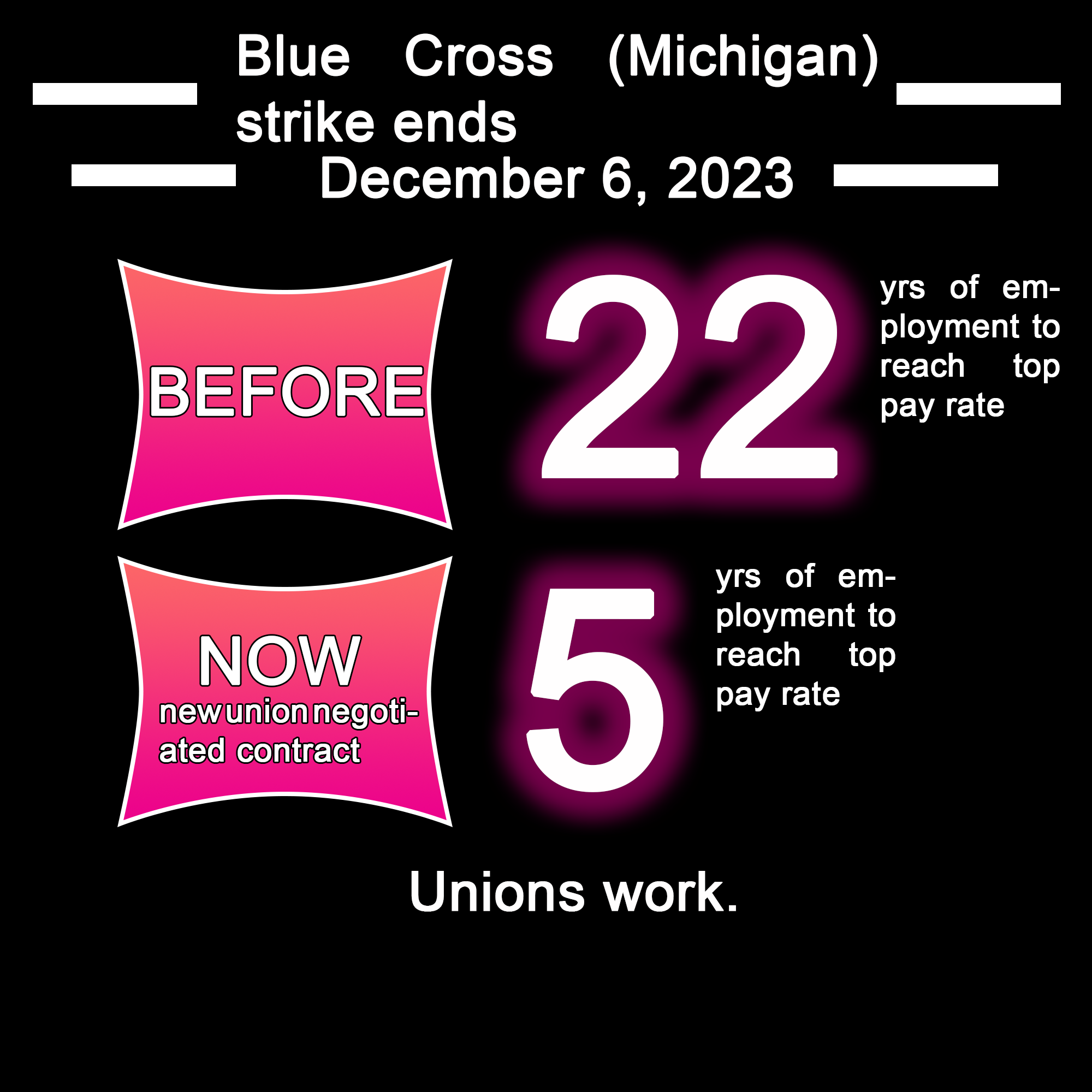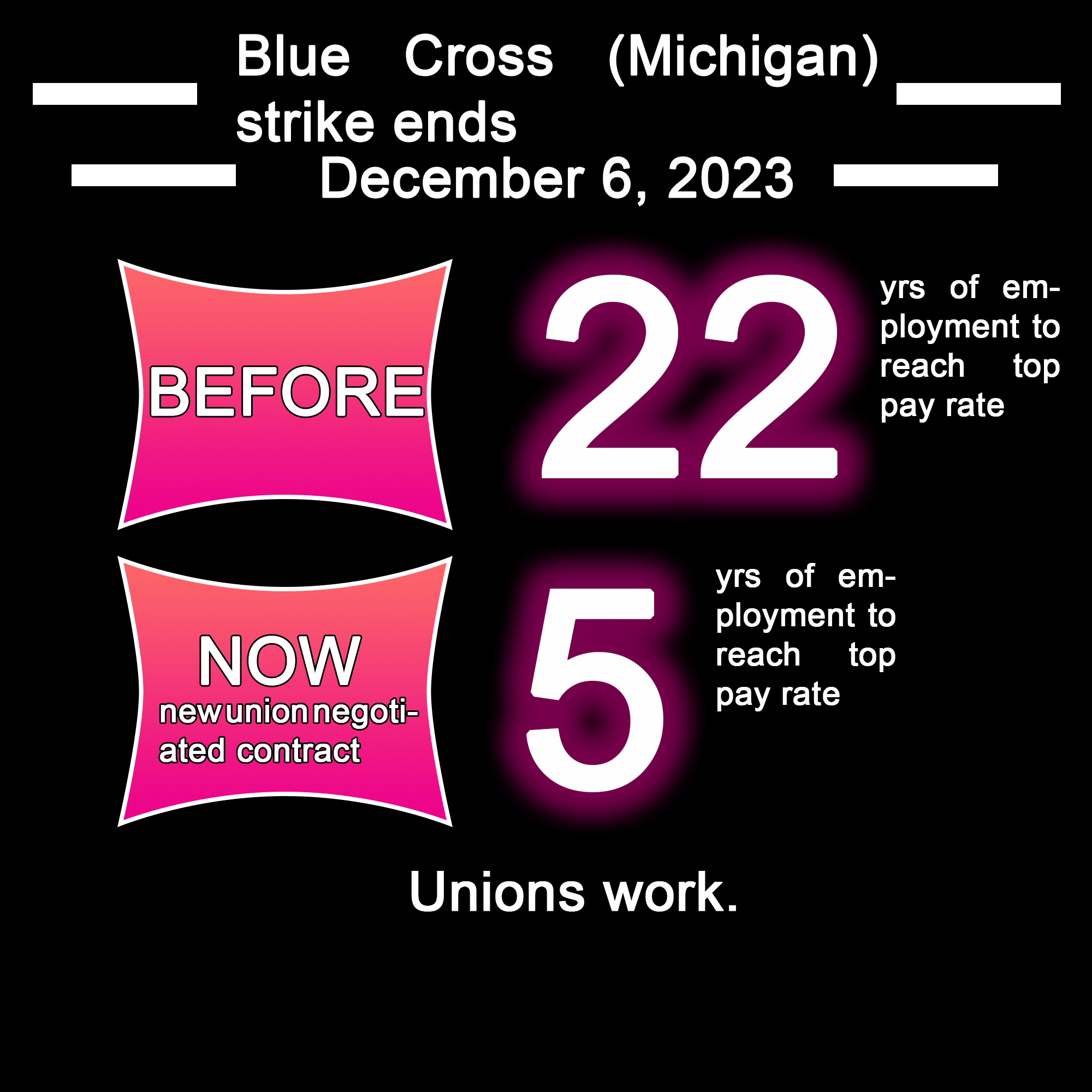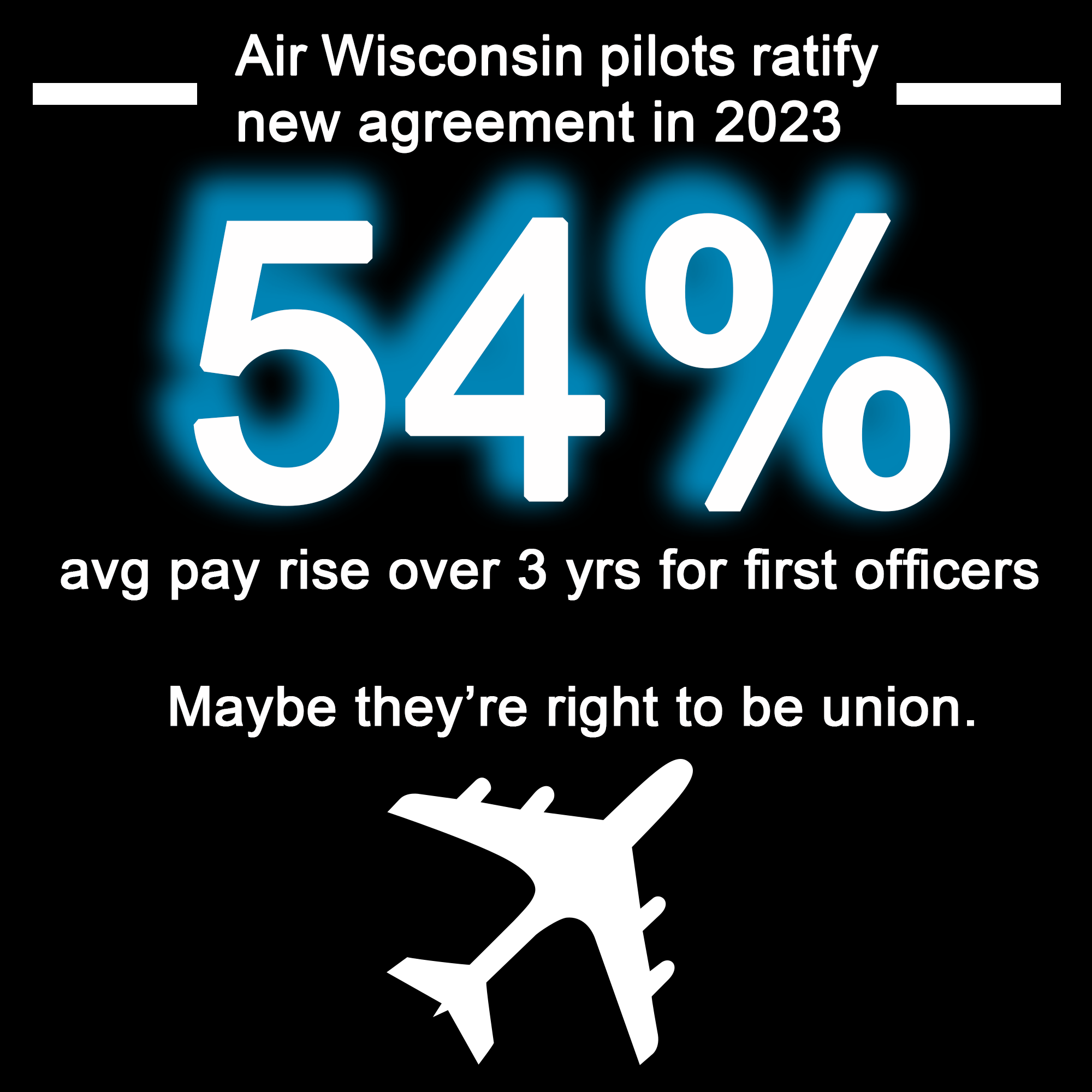Many people are confused by two common terms related to employment in the USA: "right to work" and "at-will employment". This post will attempt to demystify both.
Q. What are "right to work" (RTW) laws? A. American states are divided, because some have these laws and others don't. You'd think from the name that they help working people. But in reality, they do the opposite and were misleadingly named for political purposes.
Unions get workers higher wages and better working conditions once they start having impact in a certain workplace. The union needs to maintain a high membership rate to retain the leverage that allows that. But when some workers start freeloading at a union workplace, benefiting from these better conditions but refusing to join the union, the union weakens, and the conditions worsen over time. RTW laws prohibit union security agreements, which are powerful tools for preventing such freeloading.
As such, they weaken unions. Some people think unions are useless in states with RTW laws, but that's wrong. It should also be mentioned that generally speaking, every individual worker benefits far more from being part of the union than it costs.
Q. What is "at-will" employment? A. In simple terms, it means the company's owners can fire workers for pretty much any reason, except illegal reasons (in the USA, some types of discrimination, anti-union retaliation, etc). That would differ from "just-cause" employment. In the latter case, the standard that must be met to fire an employee is higher.
In the U.S. "at-will" employment is permitted by law in most states. But even in these states, workers may have a contract with the company that provides more job security. That's often the case in union workplaces. In other countries, things may be different. The law may only allow workers to be fired for certain approved reasons, such as repeated unjustified absences.
Q. Do RTW or at-will states allow companies to legally fire workers for supporting unions? A. All U.S. states prohibit company retaliation against workers for supporting, promoting, or organizing a union, except in certain circumstances. Workers may receive restitution up to getting their job restored with back pay depending on how the NLRB judges their case. That's not guaranteed, however, since the laws often aren't enforced accurately. And when they are, there can be long delays and other trouble.
Q. What should I do if I want to have the advantages of unions at my workplace? A. You'll find useful information at join-a-union.github.io.
Note: This post does not officially constitute legal advice nor comes with any legal guarantee of accuracy or otherwise.





I'd recommend you join a union so you can change your conditions at work, but you'll have to know a thing or two about getting your coworkers onboard to make meaningful change.
Here's a list of which unions to join - https://join-a-union.github.io/